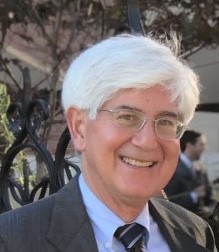| Faculty Profile |
|
Department
Phone
313-577-3105
Fax
313-577-6891
Office
2125 Biological Sciences
Selected publications
- Njus, D., Asmaro, K. Li, G, and Palomino, E. (2023) Redox cycling of quinones reduced by ascorbic acid, Chemico-Biological Interactions 373, 110397. https://doi.org/10.1016/j.cbi.2023.110397
- Marwah, P.K., Paik, G., Issa, C.J., Jemison, C.C., Qureshi, M.B., Hanna, T.M., Palomino, E., Maddipati, K.R. and Njus, D. (2022) Manganese-stimulated redox cycling of dopamine derivatives: Implications for manganism, Neurotoxicology, 90, 10-18. doi:10.1016/j.neuro.2022.02.007
- Njus, D., Kelley, P.M., Tu, Y.T., and Schlegel, H.B. (2020) Ascorbic Acid: The Chemistry Underlying Its Antioxidant Properties, Free Rad. Biol. Med. 159, 37-43. doi: 10.1016/j.freeradbiomed.2020.07.013
- Mehta, N.J., Marwah, P.K., and Njus, D. (2019) Are Proteinopathy and Oxidative Stress Two Sides of the Same Coin? Cells 8, 59. doi:10.3390/cells8010059
- Tu, Y.J., Njus, D., and Schlegel, H. B. (2017) A theoretical study of ascorbic acid oxidation and HOO• / O2-• radical scavenging, Org. Biomol. Chem. 15, 4417 – 4431
- Mehta, N.J., Asmaro, K., Hermiz, D.J., Njus, M.M., Saleh, A.H., Beningo, K.A., and Njus, D. (2016) Hypochlorite converts cysteinyl-dopamine into a cytotoxic product: A possible factor in Parkinson’s Disease, Free Radical Biology & Medicine 101, 44-52
Research Description
My laboratory is studying redox cycling of important biological compounds in an effort to discover general principles and approaches widely applicable to understanding oxidative stress in its many pathological manifestations. We are particularly interested in dopamine oxidation products because these may be responsible for the death of dopaminergic neurons which is the cause of Parkinson’s disease.
